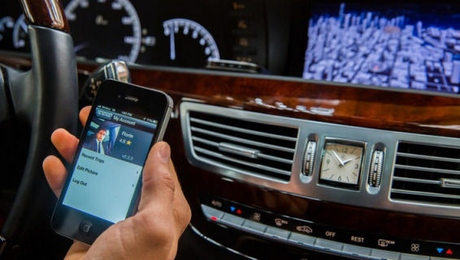NSW reportedly plans to legalise Uber

The NSW Government is reportedly planning to legalise ride-sharing services such as Uber, but imposing regulations on Uber drivers and compensating the taxi industry for the loss of exclusivity.
The mainstream press is reporting that the NSW Transport Ministry will require Uber drivers to pay a licence fee for the first time.
At the same time, the government apparently plans to address the high cost of taxi plates, which can cost as much as $320,000 in the state but have had their value reduced due to competition from Uber.
New regulations are expected to impose a higher barrier entry in terms of who can be an Uber driver, with background checks for applicants and those with a criminal record excluded. Uber cars will also need to undergo regular safety checks.
According to the reports, Uber drivers will meanwhile be excluded from competing with the taxi industry at ranks or for hail-down fares.
If the reports are accurate, the changes would be in line with the move from the ACT Government to legalise ride-sharing services such as UberX.
Cabcharge, the company that runs all the major taxi brands across New South Wales, has welcomed the decision to bring more consistency to the regulations for personal transport services. But the company’s CEO, Andrew Skelton, warned that safety must be paramount.
“We are pleased that the Minister recognises the need for regulatory change to support the ongoing evolution and competitiveness of the taxi industry. However, whilst we support the principles we believe that the NSW Government must take this opportunity to get the policy detail right,” he said.
“When a passenger gets into a vehicle, they are entrusting the driver with their safety. It is absolutely vital that we have a sound set of rules that can be applied and enforced for the safety of all passengers taking personal transport.”
Cabcharge is calling on the NSW Transport Minister to implement policies including a requirement for all people who drive passengers for money to be identified with a single Driver Authority, and that all drivers be subject to the same rules including zero blood alcohol limits while on the job.
“All of our taxi network drivers already comply with these minimum requirements, and in order to make point-to-point transport services as safe as possible for passengers, we would recommend that these policies are mandated for all on-demand services, including so called ride-sharing drivers,” Skelton said.
Four ways AI can finally make threat intelligence useful and not just noisy
Done poorly, threat intelligence is noise. But done well, it becomes one of the most powerful...
Australia’s top tech priorities for 2026
It is anticipated that AI will evolve from a pilot project to a productive standard, underpinned...
Why AI's longevity lies in utility, not novelty
The real potential of AI is in underpinning the invisible systems powering everyday business.







